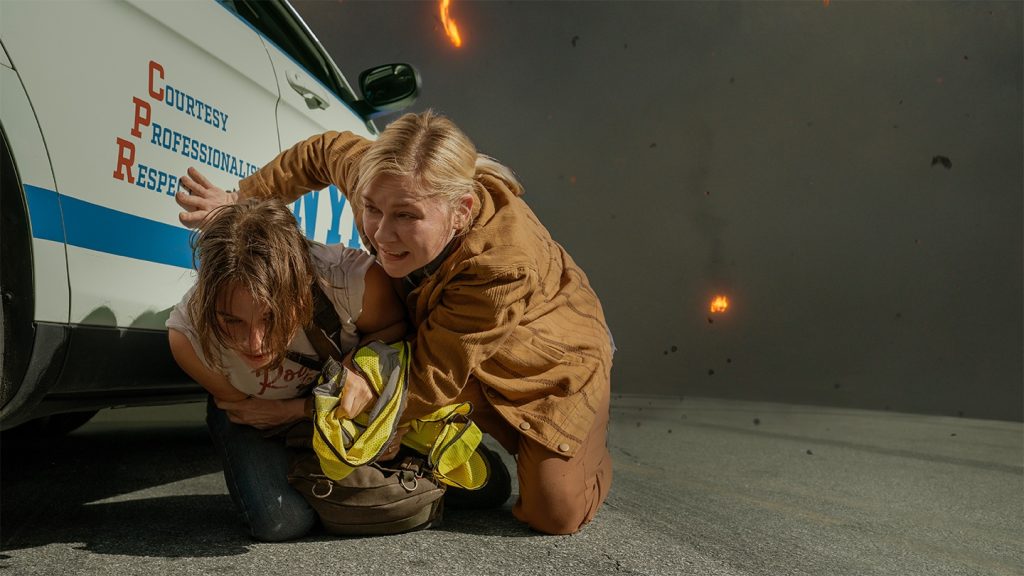John Lewis, the distinguished Democratic Congressman from Georgia, moves throughout his own documentary, John Lewis: Good Trouble, like one of those elder townspeople you see in Westerns, someone who both walks and talks very quietly, has stories for days, and, despite his solemn demeanor, has probably seen and been through a whole lotta hell. He might have even set some hell off himself on a few occasions.
Good Trouble — Lewis’s trademark mantra— serves as a sterling chronicle of the work Lewis (who turned 80 last February) did as a civil-rights activist back in the ‘60s, as well as the work he continues to do as a spokesperson for the Democratic Party, where his generally chill steelo turns into a mighty, preacher-style bravado whenever he hits the mic.
The scenes of Lewis on the road in 2018, showing support for various Democratic candidates around the country during the midterm elections, are the most amusing. Despite looking like the sort of senior gent who runs a barber shop out of his garage, the man is treated like a rock star. People both young and old are honored to be in his presence, swarming him for autographs, selfies, or just plain ol’ wisdom. (The funniest interaction is when a guy stops Lewis in the airport so the congressman can meet his “old lady.”)

As Trapped (2016) and Gideon’s Army (2013) director Dawn Porter immediately establishes in the CNN-produced doc, Lewis has lived an awe-inspiring life. After all, this is a man who grew up with his sharecropping family in Troy, Alabama. But instead of picking cotton with the rest of them, he literally snuck away to school everyday. By age 17, he wrote a letter to Dr. Martin Luther King, Jr., who would eventually take the young Lewis under his wing. (He often referred to Lewis as “the boy from Troy.”)
Lewis became a very visible member of the Civil Rights Movement, adopting MLK’s nonviolent stance on protesting and organizing, and joining such influential groups as the Freedom Riders and the Student Nonviolent Coordinating Committee (SNCC). There are scenes where archival footage from his early activist years are projected all around him on a soundstage, his life literally flashing in front of his eyes.
As Lewis revisits his past, filled with historic moments (his fiery speech at the March of Washington) and moments of brutal injustice (we see him and many others steamrolled by Alabama state troopers during the Selma to Montgomery marches), you may find yourself unnerved at how much things really haven’t changed. Seeing a young-but-determined Lewis take his lumps from those authority-abusing officers isn’t that different from the onslaught of disturbing videos we’ve seen of cops brutalizing protestors who want cops to, you know, stop brutalizing people — especially African-Americans.

Lewis never got angry, even when more militant activists began carrying the revolutionary load (when he was ousted as chairman of SNCC, he was replaced by the aggressive-but-charismatic Stokely Carmichael). But he did get crafty, opting to go into politics — first working in government and eventually running for Congress — in order to get more things done from the inside. He also got a little dirty, coming with a smear campaign against his old activist buddy Julian Bond when both were pursuing a congressional seat.
Apart from that bit of unfortunate nastiness, Trouble is all about love and praise for Lewis and his efforts. Of course, many current and former politicians show up to give Lewis his flowers: the late Elijah Cummings (who admits to taking pictures with people who thought he was Lewis), Bill and Hillary Clinton, a particularly glowing Alexandria Ocasio-Cortez (was she recorded with the same soft-focus lens Cybill Shepherd demanded when she used to be on Moonlighting?). We also get the usual friends, family, and coworkers, including longtime chief of staff Michael Collins. (I wonder if Lewis hired him because he shares the same name with an Irish revolutionary.) Nearly all of them echo the same sentiment: if it wasn’t for John Lewis fighting the good fight back in the day, they wouldn’t have gotten into politics themselves.
But now, as our country has been wrecked by everything from a pandemic to police brutality-fueled protests to blatant voter suppression to a shitty-ass president, we definitely need Lewis to stick around and inspire more future activists and leaders so they can — actually, finally, fo’ real — Make America Great Again.
B+
“John Lewis: Good Trouble” is out Friday on VOD.



